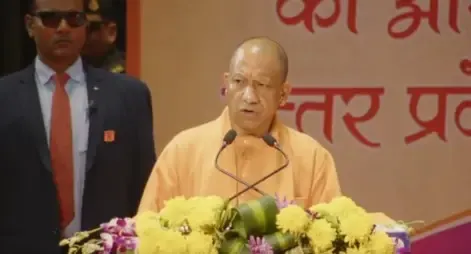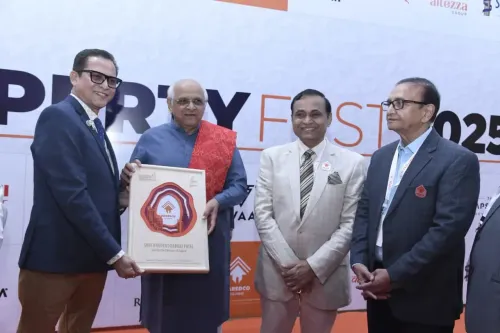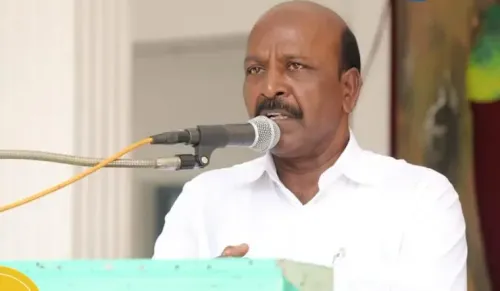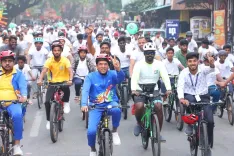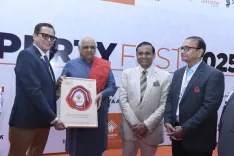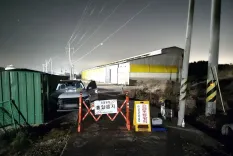Is This the India of Sardar Patel? PM Modi at Ekta Diwas
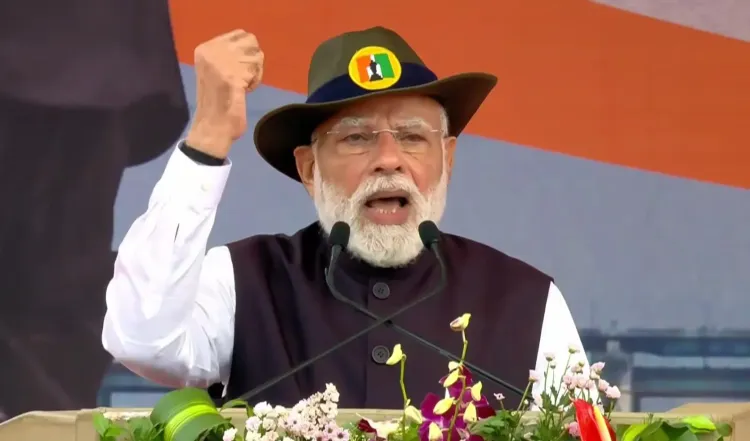
Synopsis
Key Takeaways
- Operation Sindoor demonstrated India's decisive military strength.
- Integration of Kashmir is a significant achievement since 2014.
- National security and unity are paramount in PM Modi's vision.
- Recognition of police and security forces has been restored.
- Culture plays a crucial role in maintaining India's unity.
New Delhi, Oct 31 (NationPress) Prime Minister Narendra Modi addressed the nation at the Statue of Unity, commemorating the 150th birth anniversary of Sardar Vallabhbhai Patel. He stated that during 'Operation Sindoor', the world witnessed that if anyone dares to challenge India, 'Bharat ghar mein ghus kar maarta hai' (India enters the enemy's territory to retaliate with force).
While speaking at the Rashtriya Ekta Diwas (National Unity Day) celebrations in Ekta Nagar, Gujarat, PM Modi compared the vision of India’s first Home Minister, Sardar Patel, for a united nation with the government’s ongoing efforts to uphold those principles.
Addressing the audience at the Statue of Unity in Gujarat, PM Modi remarked, "Since 2014, the nation has once again experienced the iron will and inspirational strength of Sardar Patel. Today, Kashmir has fully integrated into the mainstream, liberated from the constraints of Article 370.
"Today, even Pakistan and its sponsors of terrorism have come to understand the true might of India. During 'Operation Sindoor', the world witnessed that any attempts to challenge India result in decisive action. Each time, India's response is more significant and assertive than before. This serves as a clear message to our adversaries: This is the India of Sardar Patel, a nation that never compromises on its security or dignity.
PM Modi strongly criticized the Congress party, claiming it has forsaken Sardar Patel’s vision.
“Sardar Patel prioritized sovereignty. Unfortunately, after his passing, subsequent governments displayed little seriousness in safeguarding the nation's sovereignty,” he asserted.
“Errors in managing Kashmir, the rise of Naxalism, and unrest in the Northeast are all consequences of that weakness,” he continued.
He noted that late Prime Minister Jawaharlal Nehru obstructed Sardar Patel’s vision for the complete integration of Kashmir.
“Kashmir was segregated with a separate constitution and flag. The country suffered for decades due to the Congress’ blunders. Their ineffective policies allowed part of Kashmir to fall under Pakistan’s illegal control. Pakistan exploited that situation to fuel terrorism and violence. While Congress neglected Sardar Saheb’s vision, we have not,” PM Modi stated.
Highlighting recent advancements in national security, PM Modi stressed that his government has showcased India’s determination both at the borders and within the country.
“Today, infiltrators pose the greatest threat to our unity and security. For decades, foreign infiltrators entered our territory, exploited our resources, and disrupted our demographic equilibrium. Previous governments overlooked this issue for political gain. However, for the first time, India is taking a resolute stand to safeguard its integrity,” he declared.
Criticizing those opposing the government's measures against infiltration, PM Modi stated, “Some individuals prioritize their self-interests over the nation. They are engaged in political battles to secure rights for infiltrators. Such politics undermines the very foundation of unity that Sardar Patel established.”
The Prime Minister also paid tribute to India’s police and security forces, mentioning that the government has restored their dignity by acknowledging their sacrifices.
“It is our government that founded the National Police Memorial and honored our martyrs. Before Sardar Patel, I pay my respects to all members of our police forces who have served and continue to serve with valor and dedication. By eliminating remnants of colonial mentality and honoring our protectors, we are fortifying the spirit of national pride,” he remarked.
PM Modi emphasized that India’s unity transcends politics and is deeply anchored in its culture.
“The foremost pillar of unity is cultural unity. It is India’s culture that has united us for thousands of years, irrespective of political circumstances. Our 12 Jyotirlingas, Shaktipeeths, the Char Dham, and numerous pilgrimages are the spiritual energies that make India a vibrant and cohesive nation,” he explained.
He mentioned the Saurashtra Tamil Sangam and Kashi Tamil Sangam initiatives as examples of how the government is reconnecting different regions through shared heritage.
“Through these cultural exchanges, we are revitalizing ancient ties that reinforce our national fabric. Likewise, International Yoga Day has granted a new global identity to India’s spiritual heritage. Yoga is now a bridge connecting people worldwide,” PM Modi noted.
Prior to his address, the Prime Minister laid floral tributes at the 182-meter-tall Statue of Unity — the tallest statue in the world — and administered the Ekta Diwas pledge to the attendees, reaffirming India’s dedication to unity, integrity, and security.


